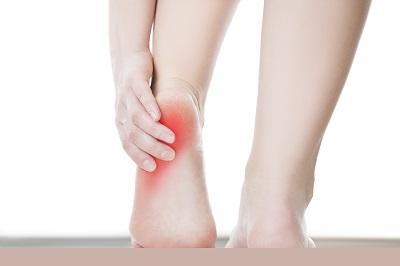 Between daily walking, jogging, and standing at our jobs, our feet can take quite a beating day in and day out. However, even the most resilient feet can reach a breaking point. Accordingly, if you have been dealing with heel pain, it’s important to know what’s going on and when it’s time to visit our Denver podiatrists, Dr. Florin Costache and Dr. Lorry Melnick, in order to avoid making a foot condition worse.
Between daily walking, jogging, and standing at our jobs, our feet can take quite a beating day in and day out. However, even the most resilient feet can reach a breaking point. Accordingly, if you have been dealing with heel pain, it’s important to know what’s going on and when it’s time to visit our Denver podiatrists, Dr. Florin Costache and Dr. Lorry Melnick, in order to avoid making a foot condition worse.
What is causing my heel pain?
There are several conditions that could be to blame for your heel pain. The most common causes include,
- Plantar fasciitis (caused by overuse)
- Achilles tendonitis (caused by overuse)
- Sprains and strains
- Heel spurs
- Bursitis
- Fractures
- Reactive arthritis
Heel pain can be the result of inflammation due to overworked/overstretched ligaments or tendons in the foot, as is the case with plantar fasciitis and Achilles tendonitis. Sports and work-related injuries can also lead to strains, sprains, and fractures, all of which result in heel pain. Long-term conditions, such as arthritis, can often make heel pain and stiffness worsen over time, as well.
When should I see a doctor?
While minor heel pain may go away on its own with simple at-home care such as resting, icing, and taking over-the-counter pain relievers, it’s important that you seek proper medical attention from our Denver foot doctors if your symptoms are severe enough to affect your daily routine or if symptoms aren’t responding to conservative treatment options.
If you’ve never had heel pain before, it’s also a good idea to come into our office so that we can make a definitive diagnosis so that you can get the treatment you need to heal properly.
How is heel pain treated?
As we mentioned earlier, minor inflammatory conditions can usually be managed with simple at-home care. If this doesn’t work, your podiatrist may recommend bracing or wrapping the foot to improve ankle support. Ultrasound, shockwave therapy, or corticosteroid injections may be recommended to ease chronic inflammatory forms of heel pain.
Fractures or severe injuries may also require physical therapy or a protective boot. Chronic conditions such as arthritis will require more long-term monitoring, as well as medications and lifestyle modifications that can slow the progression of the disease and prevent long-term damage to the joints of the foot and ankle.
Contact us
If you are dealing with persistent or recurring heel pain, call Cherry Creek Foot Clinic in Denver, CO, today to schedule an appointment. Our number is (303) 355-1695.

